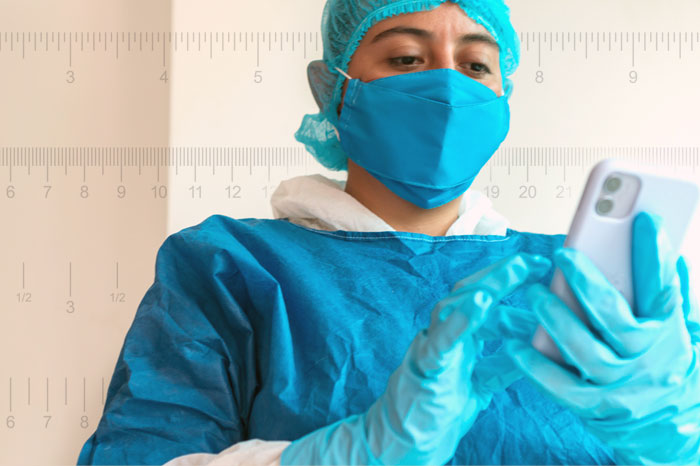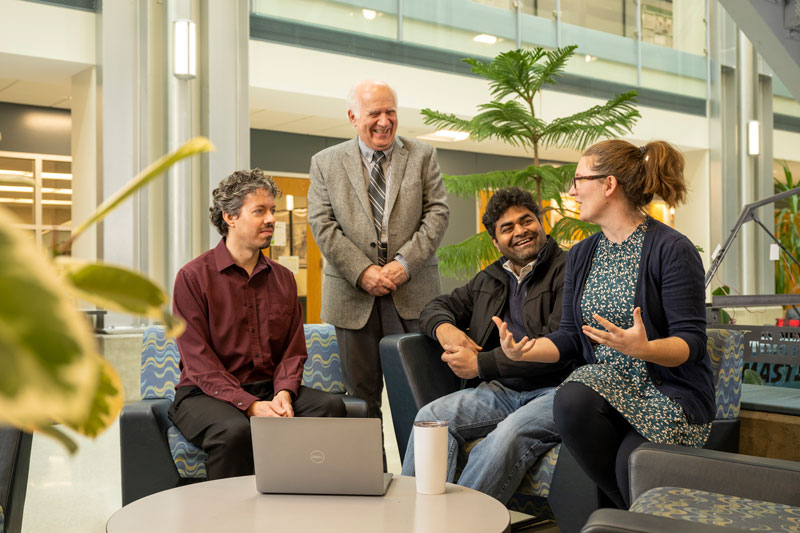Increasing transplants through innovation
UNOS Labs is a collaborative research space for developing transformational tools with the potential to advance transplant.
In partnership with donation and transplantation experts, our UNOS Labs team of biostatisticians, developers and behavioral and data scientists turns ideas into reality, creating meaningful improvements to the system.
Our work is not an academic exercise; the UNOS Labs research and test environment is meant to drive real progress within the transplant system and for our community through advanced data, technology and industry expertise.
Our work uncovers insights that can advance the transplant system.
We develop novel products, tools and processes to make improvements for our community.
Let’s talk. Learn how UNOS Labs can support your work, to save more lives. Email UNOS Labs today.

Assessing organs with augmented reality
Photographing organs for evaluation can be a challenge. Variation in lighting, positioning and ruler placement can affect how a surgeon perceives certain characteristics, like the organ’s size and color, that are used to evaluate an organ for suitability. UNOS data scientists and software engineers are prototyping an augmented reality tool that will render a 3D model of each organ, automatically measure the organ’s dimensions and annotate abnormalities and anatomical features that impact decision-making. Learn more

Proof of concept
Using AI to help place more kidneys
Improving organ utilization is a top priority for the community. We have partnered with researchers from Missouri S&T to integrate an AI tool into a new and novel SimUNetSM that is inclusive of OPOs. The AI will use natural language processing to analyze kidney acceptance and refusal behaviors. These insights can lead to solutions that allow transplant teams to make more informed, quicker decisions when evaluating an organ offer, increasing kidney utilization. Learn more

Prototype

Photo by Michael Pierce, Missouri S&T
About project phases
Incubator to implementation
We’re refining and stress-testing an idea’s durability at every stage.
Hover on the circles to learn about our rigorous development of lifesaving tools.
1
2
3
4
5
Collaboration and UNOS Labs projects
We value the insight, expertise and forward thinking of our community. UNOS Labs regularly collaborates with community members and industry experts to combine, complement and amplify each others’ proficiencies to ultimately increase the number of transplants performed and lives saved.
UNOS Labs experiments and projects fall into three major areas.
Let’s collaborate
Technology innovations
We collaborate with industry leaders to deploy new tools and technologies to strengthen system performance. Solutions like the UNOS Organ Tracking Service began as experimental pilots in UNOS Labs.
Behavioral research
We partner with human behavior experts to study the impacts of human interactions on the system. For example, SimUNet is a simulated organ offer system that tests impact of system changes on organ acceptance behavior.
Data science
We test new algorithms, models and analytics to find opportunities to improve the system. This includes developing predictive analytics and using machine learning techniques such as natural language processing to improve efficiency.
Identify opportunities through organ offer simulations
SimUNet, UNOS’ proprietary simulation platform, offers a testing ground for understanding and improving behaviors. We’re expanding the power of this robust tool for exploring kidney offers to give insights on additional organs. Learn more

Implementation

Innovating together
Our work is made possible, in part, by visionary supporters like David Landes.
